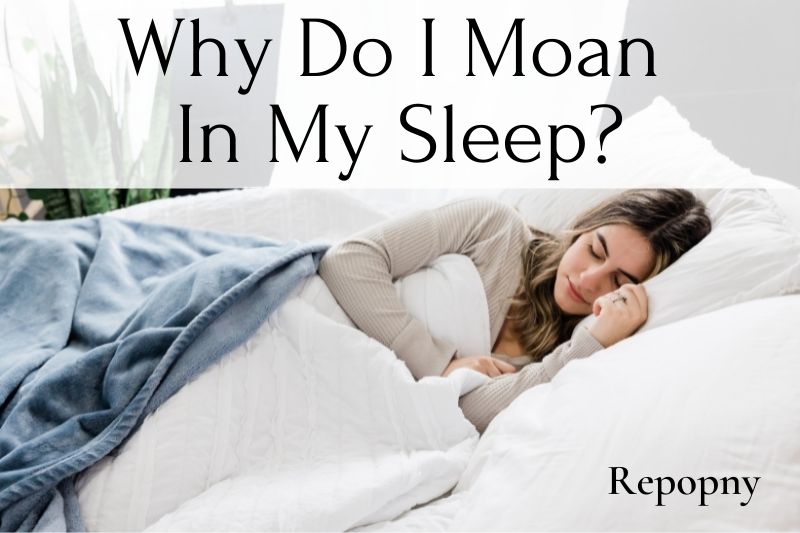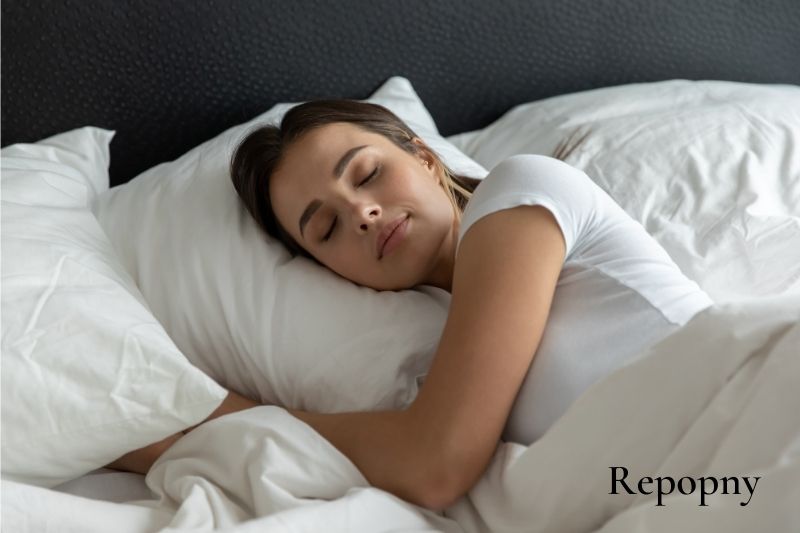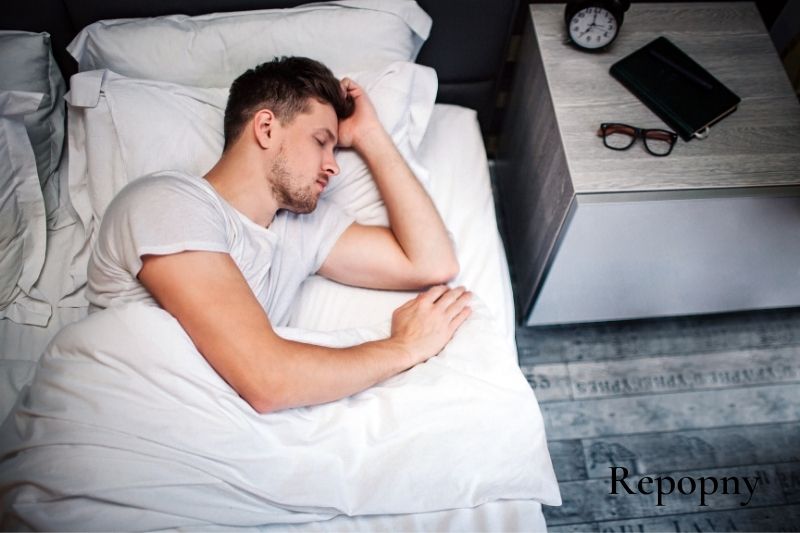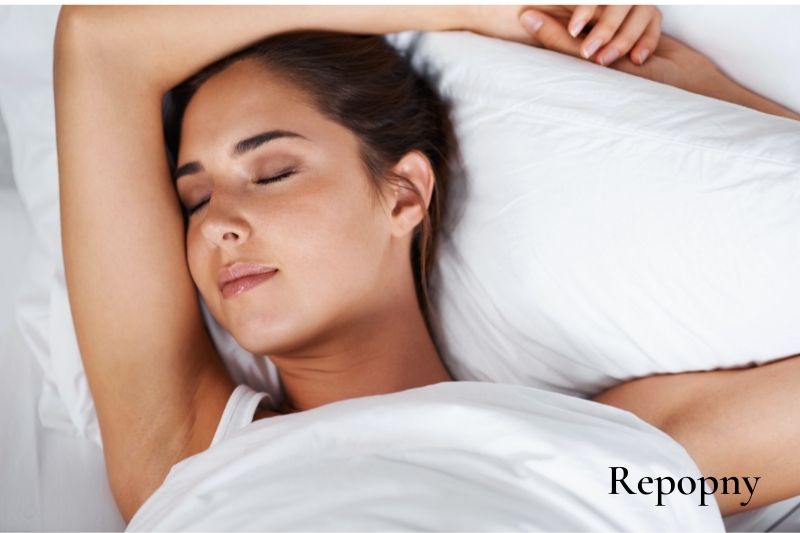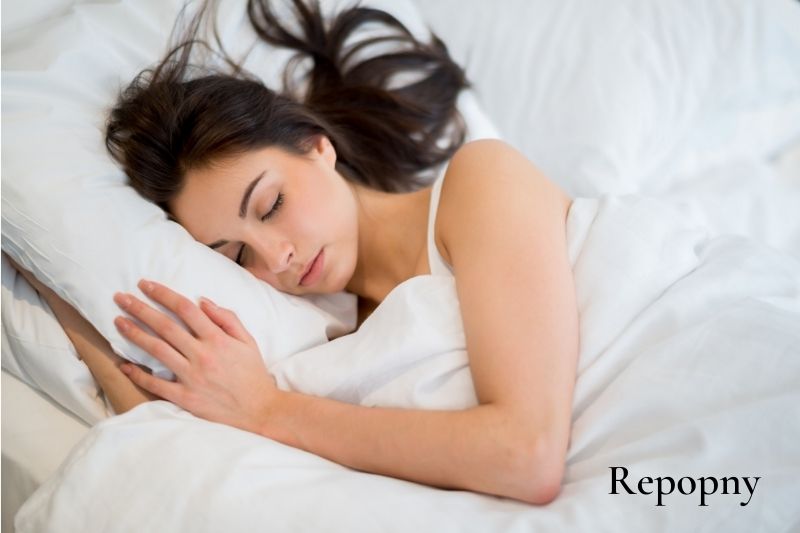There are a few different reasons why do I moan in my sleep. It could be a sign of central sleep apnea, which I when someone stops breathing for short periods during sleep.
It could also be a symptom of another rare sleep disorder, such as restless leg syndrome. In some cases, moaning in sleep can be a regular part of sleep talking.
Contents
- 1 What Is Catathrenia?
- 2 Catathrenia Symptoms
- 3 What Are the Causes of Catathrenia?
- 4 How Is Catathrenia Diagnosed?
- 5 What Distinguishes Catathrenia From Snoring And Sleep Apnea?
- 6 How Is Catathrenia Treated?
- 7 When Should You Call Your Doctor?
- 8 Tips for Better Sleep – For You and Your Bed Partner
- 9 Conclusion
What Is Catathrenia?
The internal medicine name for groaning when sleeping is catathrenia. Exhalation or out-breathing produces protracted, sometimes loud groans in people with sleep-related breathing disorders, most often during REM or deep sleep. In this respect, catathrenia is the polar opposite of snoring, which happens during inhalation or in-breathing.
Catathrenia is increasingly classified as a sleep-related respiratory condition, similar to sleep apnea, while there is still some disagreement. Catathrenia does not appear to be linked to any recognized health risks, nor is it associated with a disturbed emotional state or physical discomfort during sleeping.
Catathrenia is a relatively uncommon condition. Only one out of every 200 sleep-clinic referrals, according to a 2017 study, contained sleep moaning. Catathrenia patients are usually well-rested, but their bed companions may not be. A primary care physician or a asleep expert at Baptist Health can help you or a loved one cope with catathrenia.
Catathrenia Symptoms
Catathrenia’s primary symptom is a nightly moaning and groaning sound that the sleeper doesn’t realize they make. This sound can be monotone and may be perceived as gloomy, sullen, or sexual. When you exhale, the groaning stops, and you inhale.
Catathrenia can affect both children and adults. Catathrenia can occur when family members or sleeping partners are disturbed by the sound. This causes the person to seek treatment.
Experts have limited knowledge of the other symptoms of the sleep-related breathing disorder
due to the small number of cases. Some cases have shown that nighttime groaning and combinations of these symptoms can be seen in some cases.
- Snoring
- Dry mouth
- Breathing in the mouth
- Sleep disruption
- Fatigue
- Morning grogginess
- Morning headache
- Concentration problems
What Are the Causes of Catathrenia?
Catathrenia has no recognized cause. Sleep groaning has been linked to small jaw size, childhood orthodontia, and a personal or family medical history of sleep-related respiratory abnormalities or parasomnias, such as asleep talking, according to a medical study.
How Is Catathrenia Diagnosed?
The diagnosis of catathrenia involves multiple steps:
- Symptom documentation: Your doctor will keep track of your symptoms, including the frequency and intensity of your groans and any secondary symptoms such as daytime fatigue or decreased attentiveness.
- A physical exam will involve a check of your nose, mouth, and throat cavities for any sleep related breathing problems. It might also entail using imaging equipment to better picture your interior anatomy.
- Questioning an observer: Because you’re unconscious while you groan, your doctor might want to question your spouse, or another relevant observer kept awake by your sleeping.
- Sleep study: A sleep study may be required depending on the severity of your symptoms. During rest, your moaning and other physiological reactions will be watched and recorded. Sleep studies can be performed at home or in a medical facility.
What Distinguishes Catathrenia From Snoring And Sleep Apnea?
Exhalation causes groaning, while inhalation causes snoring. While a bedmate may find the moaning noises irritating, the mental disorders are unrelated to primary medical conditions. There is no decline in blood oxygen saturation during catathrenia, frequent in sleep apnea.
Catathrenia patients rarely have fragmented sleep or excessive daytime sleepiness, which are common sleep apnea symptoms. Most catathrenia sufferers get a good night’s asleep and wake up feeling refreshed.
Maybe you want to know more about obstructive sleep apnea, see this guide: Can Sleep Apnea Kill You?
How Is Catathrenia Treated?
Depending on the severity of your or a bed partner’s discomfort, your doctor may suggest:
A CPAP (continuous positive airway pressure) device is a breathing mask you wear over your face while sleeping. It’s connected to a pump that gradually pushes pressured air into your breathing passageways to keep them open. The use of CPAP has been demonstrated to help reduce moaning.
An oral appliance consists of: An oral appliance is a custom-made mouthpiece that keeps your jaw, tongue, and palate in the appropriate position while you falling asleep, lowering the risk of partial obstruction.
Surgery: Your medical team may decide to remove extra tissue from your breathing passageways through surgery in some circumstances. The uvulopalatopharyngoplasty (UPPP) procedure, for example, involves the removal of tissue from the throat canal. Another alternative is to have surgery on your airway.
The efficacy of these therapies varies greatly depending on groaning and the patient’s level of dedication to nightwear technologies.
When Should You Call Your Doctor?
People who suffer from nightly moaning frequently are unaware of their condition. Instead, a family member or sleep companion could alert them to the noises they produce while sleeping. Contact your doctor if you create distressing nighttime noises or have additional symptoms like insomnia or exhaustion.
If at all feasible, keep track of your symptoms and your observations of the groaning sounds. These notes can help your doctor get a better picture of your situation. Other related sleep disorders, such as sleep talking and snoring occurs, can then be ruled out by your doctor.
Polysomnography, or asleep test, is commonly used to diagnose catathrenia. Your sleeping test may reveal irregular breathing patterns and restricted airways if you sigh at night. Your doctor may also perform a physical examination of your head, neck, jaw, and tonsils to look for signs of nighttime groaning.
Are you worried about drool symptoms, see this guide: Why Do I Drool When I Sleep?
Tips for Better Sleep – For You and Your Bed Partner
Improve your sleep hygiene to get a better night’s sleep. The following are examples of good sleep hygiene:
Maintaining a consistent wake-sleep cycle, especially on weekends
- Making a sleep-friendly atmosphere by reducing light and noise
- Before going to bed, do something relaxing like take a bath or read a book.
- Getting some exercise during the day
- Caffeine should be avoided in the afternoon and evening.
- Limiting the amount of alcohol consumed
- Avoiding using devices in the hours leading up to bedtime
If you suffer from midnight groaning, treatments like CPAP therapy or surgical surgery may be able to help. If the moaning is only a minor annoyance to your sleep partner or family, sound-reducing gadgets may be worth investing in. A white noise machine, for example, can mask the sound of groans. Bed partners could also wear earplugs or noise-canceling headphones.
Conclusion
The best way to prevent sleep moaning is to get a good night’s sleep. Make sure that you go to bed simultaneously every night and get enough sleeping. If you are concerned about why you are moaning in your restless sleep, it is best to talk to a doctor or a sleep specialist. Repopny hopes this article helped!
